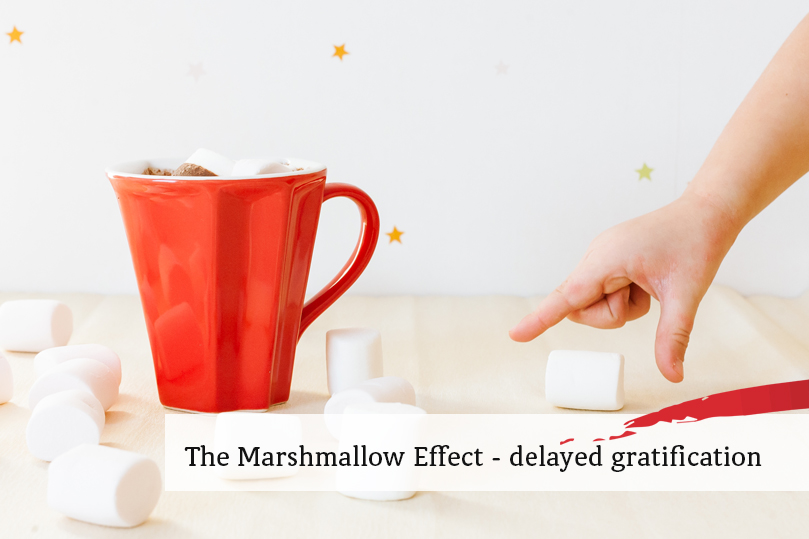The Marshmallow Effect – temptation, delayed gratification and personal finance

I can already hear you ask – what do marshmallows have to do with personal finance?
Well, studies have shown interesting insight into the connection between self-control and personal finance based on the coping mechanisms children applied when faced with the following choice: either have one marshmallow now, or wait 15 minutes and get two.
The kids that opted for the higher reward distracted themselves to make it through the 15-minute wait – and we can take inspiration from that for our approach to financial planning and investing, where long-term planning usually delivers better returns.
But in today’s day and age where everything happens instantly, delayed gratification has become increasingly difficult.
We are being bombarded with more advertising messages than ever, we can buy everything online anytime and anywhere, and digital marketing campaigns target us with personalised content and offers – the temptation to spend money is constant and strong, and the barriers are very low.
So, if you are easily tempted to spend money for the instant joy rather than save it for later, do what the kids did: distract yourself or get away from the temptation. This can be small changes, including unsubscribing from special offers for holidays and sales events, to bigger adjustments such as not checking your portfolio growth every day if this may lead you to chopping and changing your investments rather than sticking to the strategy.
Want some advice to help keep the temptations at bay? Contact us to make an enquiry.
Catapult Wealth clients can access the full article here.
To see the effect of the Marshmallow Experiment, view this video.

